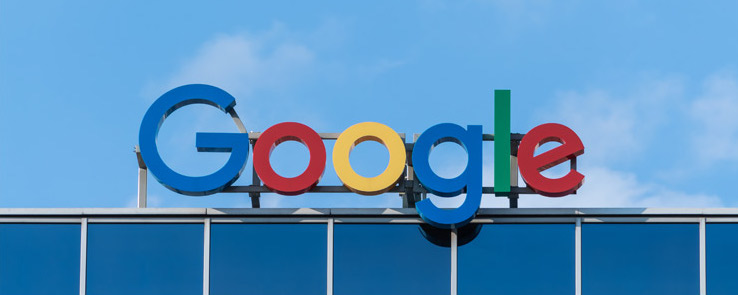BigTech giants the new polluters
19 Feb 2021

There is a complex debate on what private foundations should exclude from or implicitly accept in an index tracker. In this blogpost, our Supervisory Board Chair (Ad interim), Rien van Gendt touches on whether Big Tech companies should also be excluded as new polluters in the figurative sense.
Why funds should reconsider their investments in BigTech companies
Sustainability is what we want to achieve as investment funds, right? If so, shouldn’t we be leaving BigTech stocks—companies such as Facebook, Twitter and Google—out of our portfolios? We surely need to look beyond excluding controversial weapons and tobacco or protecting the environment and even contributing to a better climate. Shouldn’t we actively protect the quality of information and the public debate as well? Shouldn’t we strive to protect freedom of speech and preserve our democracy?
In an age where pure fantasies and conspiracy theories abound, disseminated freely via social media and polluting our news and information, how can we hope to make a carefully considered decision about the environment and our climate that can enjoy broad-based support? In that sense, concerns about the environment and climate are closely linked to a well-functioning, democratic system of decision-making and accurate information.
Accountability is close to absent
There are no two ways about it: Facebook did a good thing in barring Trump from its platform during the last days of his Presidency. But what were they and other social media companies doing in the three years, eleven months and three weeks that preceded it? In recent hearings in the US House of Representatives, the dangers of the monopolistic power of companies such as Apple, Facebook, Alphabet (Google), Amazon and Microsoft with regard to social media, search engines and e-commerce came to light. Social media platforms like to portray themselves as conduits for information, rather than publishers with a filter. Why should a private company with hardly any accountability to the public be able to regulate freedom of expression? Shouldn’t that be a job for the government?
If you take this position as a private foundation, what implications does it have for your investment policy? It certainly means food for thought and merits serious discussion.
ESG trackers: what’s under the hood?
As soon as foundations start carefully examining their investment portfolios in order to promote sustainability, CSR or ESG (environmental, social, governance) approaches, they start off on a road littered with difficult choices.
On the boards of most endowed foundations, doing this will prompt a discussion about which types of companies should be excluded from investment mandates. This will generally boil down to the exclusion of the arms industry, tobacco, gambling, fossil fuels, nuclear energy and other goods/services that just will not fly in the eyes of foundation boards with a fiduciary responsibility.
Just as often, funds decide to bypass these tough discussions and instead simply invest in a sustainable global index, known as an ESG tracker, which consists mainly of companies that are viewed positively and represent socially responsible investments.
In fact, these sustainable index investments can boast excellent financial performance compared to broad market indexes such as the MSCI index. But do the funds opting for these ESG trackers know what’s under the hood and why these trackers have been performing so well recently?
Beyond environmental pollution
An important factor is that, in many ESG indexes, energy is underweighted, while information technology is overweighted—in particular Big Tech stocks, also known as growth stocks, which have skyrocketed since the onset of the Covid 19 pandemic. These stocks score very highly in terms of ESG criteria—at least the criteria that have been used so far—as they have no or hardly any effect on the environment. Conversely, for more traditional stocks in the energy or food sector, the so-called value stocks, improvements can always be made in terms of sustainability.
The question we now have to ask is: should we use ESG trackers to support companies that challenge our democratic decision-making processes? Similarly, funds that do not use trackers but exclude certain companies from their portfolios will have to ask themselves whether they should also exclude Big Tech companies—as new polluters in the figurative sense.
I’m not necessarily in favour of a blanket ban on Big Tech stock, but I do want to have a conversation about these issues. To that end, I propose three points for discussion below.
The accountability of private funds
Firstly, I mentioned earlier on in this article how social media giants have little to no accountability towards society. But can’t the same be said of private foundations? My answer would be: “Yes, to a certain extent”. You can indeed start questioning the legitimacy of super-sized private foundatioins that can almost be seen as quasi-governments. As soon as they start competing with governments, without being able to clearly demonstrate which choices are made and why, this line of criticism can be justified.
Secondly, I am not really an advocate of simply refraining from investing, either directly or indirectly, in companies that may jeopardise the sustainability or quality of society. Making your voice heard and seeing if you and fellow foundations can exert influence through your investments is a much better alternative to this exit option. There are plenty of examples of being heard as a shareholder through proxy voting, even as an endowed foundation.
Finally, it should be noted that the debate about what to exclude from or implicitly accept in an index tracker is a complex one. Why do we necessarily want to exclude nuclear energy from sustainable investment strategies? Is it because we believe the discussion is done and dusted and we’ve all decided that nuclear is a no-go? Why should we not subject Big Tech companies to similar scrutiny to explore whether they are harmful to the quality of our democratic society?
I’d be interested to hear whether your board is planning to have such discussions in the near future.
